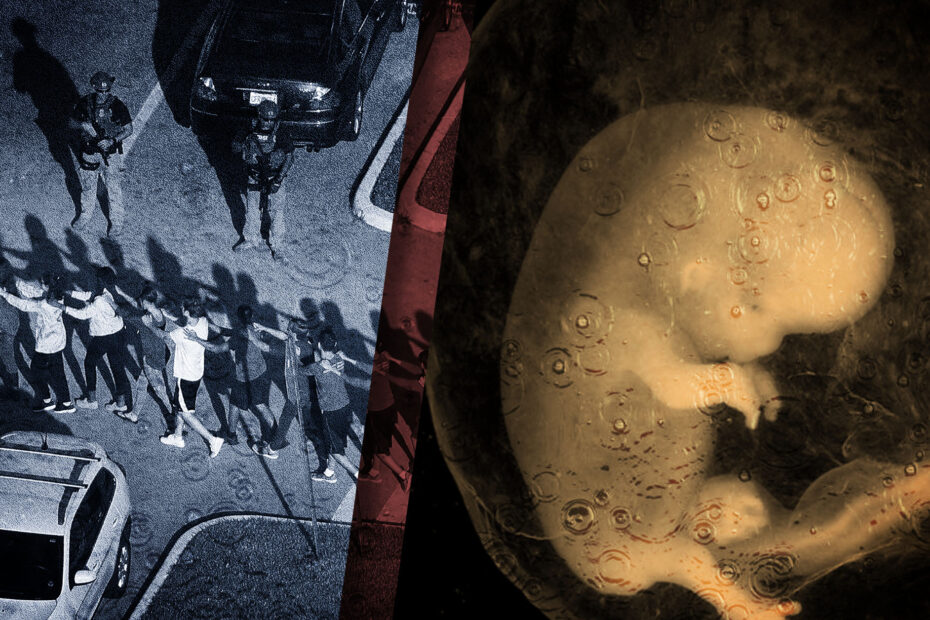By Susan Ciancio
As parents, or as anyone who cares about children or their fellow human beings, we should be terrified. We should be angry. This week, another gunman went into another public place and killed more innocent people. This time it was children.
Nineteen children went to school on Tuesday and never made it home. Two adults never made it home. The tragedy in Texas is far reaching, and the country mourns with the families of all the victims.
As a pro-life people, we are sickened by the grip that the culture of death has on our country. We are sickened that people cannot be safe in school, or in grocery stores, or on public streets.
Crime is rampant because evil is rampant. Yet when tragedies like this occur, it seems the entire country bands together to grieve. For a few days.
But though we all grieve, it doesn’t appear that the culture is really changing. In fact, it seems at times like it’s getting worse.
This violence against our fellow human beings has to stop. Too many innocent people—born and preborn—have lost their lives. And though the country grieves as one for this most recent senseless loss of lives, I have to wonder why the prevalence of tragic scenes like this continues to increase. What makes a teenager plot to kill people in a grocery store? What makes a teenager shoot his grandmother and then decide to target children?
Yet it’s not just the mass violence that should make our hearts ache; it’s also the violence that occurs every day, especially in large cities, across the nation. It’s the gang violence, the random shootings, the stray bullets that hit innocent people. There is no desire to protect human life. In fact, I would go so far as to say that protecting human life is an afterthought to many people.
It seems to me that this lack of empathy is a mental illness borne of a hatred for the vulnerable. For how could we not think that someone who kills multiple people or who targets the innocent is not mentally ill? These are not the actions of a sane person.
I had a college professor who used to teach that “hurt people hurt people.” Indeed. And it seems that we have a nation of hurting people right now, some of whom lash out in the most horrific ways.
Just as we make an examination of conscience before the sacrament of confession, so now we must examine the conscience of our collective nation. What has brought us to this point? Could it be that nearly 50 years of hatred for a preborn baby have seeped into the national consciousness and destroyed any inherent love for a human being’s life? Could it be that women screaming on street corners about “my body, my choice” have left their mark on young people who think only of themselves and not how their actions impact another? Could it be that the euthanasia mentality that says we can dispense of the vulnerable makes people see the vulnerable as less “human” and thus disposable? Could it be that a country that has lost sight of God has also lost sight of the goodness, the light, and the love that faith brings?
As I read the news and felt just a fraction of what those poor families feel, I couldn’t help but think of Christ after the death of Lazarus and upon seeing Lazarus’ sister Mary, who was distraught over his death. The Gospel of John said simply, “And Jesus wept.”
Jesus wept because He was filled with compassion for Mary. He wept because He loved Lazarus. Though Christ knew that He would raise Lazarus and that an earthly death is not the final word, He felt the grief we all feel when we lose someone we deeply care for.
We know that Jesus wept when that gunman opened fire. He wept for the children and adults so senselessly killed. He wept for their families. He wept for the gunman. And He continues to weep with those who are suffering.
Our faith encourages us to remain strong, even when the pain is crippling. This is not always easy, but knowing that Christ walks with us in our grief makes that grief feel a little less devastating and a little less lonely.
We may think that there’s not much we can do. We may feel helpless to effect change. We may look around at the world and feel lost and hopeless. But we must remember that, in Christ, we have hope. Through Him, we can make a difference.
It is our responsibility to help build a culture of life every day. It doesn’t have to be on a grand scale. Most of us are not politicians and cannot make sweeping societal changes. But we need not have that kind of influence to change hearts and minds or to be the light of Christ to others.
Building a culture of life begins with us all, and it begins at home. So, tonight, I challenge you to turn off the TV, put down the devices, and pray with your family. Pray for the families affected by violence of all kinds. Pray for those who feel they must resort to violence. Pray for our culture to change because the further and further we get from God and morality, the closer we get to chaos and anarchy. And chaos and anarchy lead only to evil.
As you pray, remember those three words from the Gospel of John: “And Jesus wept.” Remember them because they not only show us that Christ feels compassion when we hurt but that He cares for every single one of us. No exceptions. He cares because we belong to Him. We are His.
Let us pray that our culture begins to understand this love so that we make Him weep no more.
